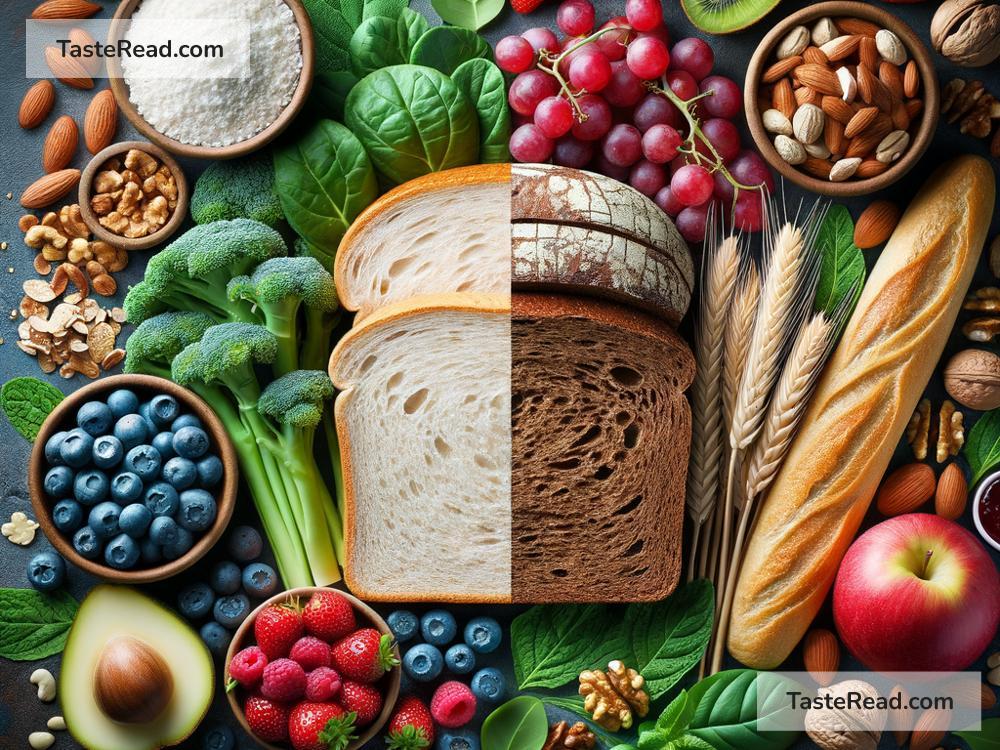The Impact of Refined Carbs on Health: What You Need to Know
Carbohydrates are one of the main types of nutrients that give you energy. They can be found in foods like bread, rice, pasta, fruits, and vegetables. But not all carbs are the same. There are two main types: complex carbs (like whole grains, legumes, and vegetables) and refined carbs (like white bread, sugary snacks, and soda). While complex carbs are good for your body, refined carbs can cause health problems when eaten in large amounts.
In this article, we’ll explore what refined carbs are, why they can be harmful, and how you can make healthier choices.
What Are Refined Carbs?
Refined carbs are carbohydrates that have been processed, removing most of their natural nutrients and fiber. During the refining process, important parts of the food, like the bran and germ in whole grains, are stripped away. This leaves behind a product that is often softer, lighter, and has a longer shelf life—but it also lacks the fiber, vitamins, and minerals that make whole foods healthy.
Some common examples of refined carbs include:
– White bread and pastries
– Sugary cereals
– Cookies, cakes, and other sweets
– Soda and sugary drinks
– White pasta and white rice
These foods might taste good and feel comforting, but they don’t offer much nutritional value. Instead, they are mostly made up of sugar and simple starches.
How Refined Carbs Affect Your Health
Refined carbs can have several negative effects on your health, especially if they are a big part of your daily diet. Here are some key ways they impact your body:
1. Spikes in Blood Sugar Levels
Refined carbs are digested very quickly because they lack fiber. When you eat them, they cause a sudden spike in your blood sugar levels. For example, eating a doughnut or drinking a sugary soda can make your blood sugar rise quickly, giving you a temporary burst of energy. But soon after, your blood sugar crashes, leaving you feeling tired, hungry, or even irritable. This constant blood sugar rollercoaster can put a strain on your body over time.
2. Increased Risk of Diabetes
When your blood sugar spikes frequently, your body has to work harder to produce insulin, the hormone that helps regulate blood sugar. Eating a lot of refined carbs can eventually lead to insulin resistance, which means your body doesn’t respond to insulin properly. Over time, this can increase your risk of developing type 2 diabetes—a serious health condition.
3. Weight Gain
Refined carbs are easy to overeat because they lack fiber and don’t make you feel full for long. Foods like cookies, chips, and white bread can be addictive, leading to cravings and overeating. Plus, many refined carbs have extra sugar and unhealthy fats, which can contribute to weight gain. Being overweight can raise your risk of other health problems, such as heart disease and joint pain.
4. Heart Disease
A diet high in refined carbs has been linked to an increased risk of heart disease. This is because refined carbs can raise levels of unhealthy cholesterol and triglycerides in your blood. Eating too many sugary or starchy foods can also lead to inflammation in your body, which damages your arteries over time.
5. Poor Gut Health
Your gut is home to trillions of bacteria that play a big role in your overall health. Eating foods with fiber, like fruits and whole grains, helps feed the good bacteria in your gut. But refined carbs don’t provide the fiber these bacteria need to thrive. Over time, this can harm your gut health and weaken your immune system.
6. Lack of Nutrients
Refined carbs don’t have the vitamins and minerals your body needs. If most of your diet comes from refined carbs, you might miss out on essential nutrients, like vitamin B, magnesium, and iron. This can lead to fatigue, poor concentration, and even long-term health issues.
How to Make Healthier Choices
The good news is that you can take simple steps to reduce your intake of refined carbs and choose healthier alternatives. Here are some tips to get started:
1. Switch to Whole Grains
Choose whole-grain bread, pasta, and rice instead of white versions. Whole grains give you more fiber, which helps you feel full and supports your digestive health.
2. Limit Sugary Drinks
Instead of soda or energy drinks, opt for water, herbal tea, or sparkling water. If you need a little sweetness, add a slice of lemon or a splash of fruit juice.
3. Snack Smart
Instead of reaching for cookies or chips, try snacking on fruits, nuts, or yogurt. They’re more satisfying and give you important nutrients.
4. Read Labels
When shopping, check the nutrition labels on packaged foods. Avoid items with added sugars and ingredients like high-fructose corn syrup.
5. Cook at Home
Preparing meals at home gives you better control over what you eat. You can use fresh, wholesome ingredients to avoid processed foods and refined carbs.
The Bottom Line
Refined carbs might be convenient and tasty, but eating them too often can harm your health. By choosing whole, unprocessed foods and cutting back on sugary treats, you can lower your risk of health problems like diabetes, heart disease, and weight gain. Small changes to your diet can make a big difference over time, helping you feel better and live healthier. Remember, food is fuel for your body—so make sure you give yourself the best possible ingredients!


